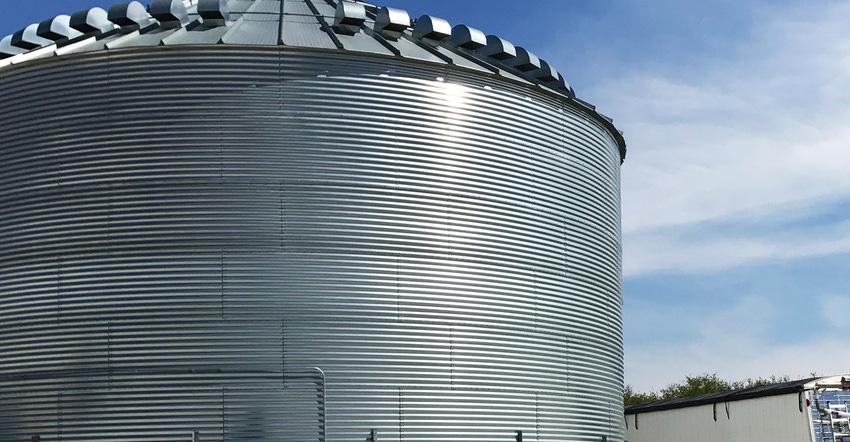
With the arrival of planting season, farmers need to regularly check their stored grain to prevent spoilage. “This spring you need to double the frequency in which you inspect your grain,” says Charles Hurburgh, grain quality and handling specialist with Iowa State University Extension. “This is a high-risk year and the condition of stored grain could deteriorate quickly.”
“Pay attention to dew point temperatures in the air,” advises Hurburgh, who serves as director of the Iowa Grain Quality Initiative. “If we have a stretch of big storms, there will often be dry air afterward with dew points in the 30s and 40s. Run the fans if grain is warmer than that, in order to keep grain cold as long as possible.”
Keep an eye on dew point, humidity
Humid weather can cause grain storage problems and can become an issue if grain is not cooled. If the relative humidity is 65% or above, fungi and other spoilage organisms can develop. Aeration in storage bins is done to stay below 65% humidity in the grain mass, which helps prevent spoilage.
“If the stored corn is cold, occasionally water will condense on the top of the bins, so having a bin with a roof ventilator is a plus,” he says. “If the water has condensed on the roof, take care of it right away with a roof fan, and it won’t be necessary to aerate the whole bin with air that’s warmer than it needs to be.”
Last fall was not a good cooling period, as outdoor air temperatures were warm with relatively high dew points. More of the grain’s storage life was used up, creating higher risks for stored grain this summer. The large carryover supply of grain this year means some of the 2016 crop will need to be held in good condition even into 2018.
Does planting delay mean wet harvest?
Wet weather this spring is delaying planting in some areas, but a higher moisture harvest is not currently being forecast for this coming fall.
“A common misconception is if planting season is later, then harvest season will be later,” says Hurburgh. “It’s also a misconception that early planting means early harvest, but there is no real correlation between planting date and having wet corn in the fall. The planting date will have no predictable impact on grain moisture at harvest, at least up to a time when corn planting is likely to be switched out in preference to planting soybeans instead of corn. Grain moisture at harvest has everything to do with the weather in August and September.”
For more information, the Iowa Grain Quality Initiative has developed online learning modules to help farmers learn proper grain storage practices. The Iowa Grain Quality Aeration Module, CROP 3083B, and Iowa Grain Quality Fan Performance Module, CROP 3083C, produced in cooperation with the Crop Advisor Institute, helps users understand the function of aeration in preventing grain spoilage and how fan performance helps to cool grain, as well as the requirement for fan selection.
Other available modules address grain storage economics, food safety and animal nutrition, supply chain analysis, and processing. The modules are free and can be accessed on the Extension Store.
About the Author(s)
You May Also Like




